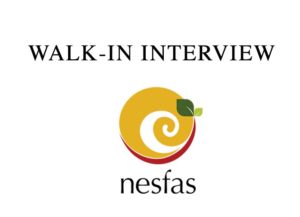Date: 13th May 2016; Venue: UN HQ, NYC: Indigenous Perspectives On Food And Wellbeing Finds Audience at The UN
Khasi Cuisine found representation and appreciation at the 15th UN Permanent Forum scheduled from the 9th to 20th May 2016, at the United Nations Head Quarters in New York, through a side event titled “Harvesting Peace.” Another major highlight of the side event was the sharing of the Shillong Declaration that was drafted during the Indigenous Terra Madre (ITM) 2015 that took place in Meghalaya last November. The side event was organised by Rome based, Indigenous Partnership for Agrobioiversity and Food Sovereignty (TIP), which was one of the main organisers of ITM 2015, in collaboration with CHIRAPAQ (Center for Indigenous Cultures of Peru); the Porini Welfare Association, Kenya; Tebtebba Association, Philippines and The Sioux Chef, USA. Designed to be a session of storytelling, the side event created a platform where local voices was given the opportunity to meet global audiences to discover avenues to the “Future We Want”.
The tasting reception featuring Indigenous foods from North America and North East India was organised for the 200 participants of the side event. While Chef Sean Sherman prepared amaranth cracker, whipped white bean and smoked whitefish, raspberry rosehip sauce and dried ramps served with a drink of cedar and maple tea, Anita Roy, Board Member, NESFAS presented a number of dishes representing Meghalaya including ja stem, pork with pumpkin, and radish and sesame salad highlighting the ingredients including turmeric, black pepper and garlic from the region.
Mrs. Roy also demonstrated the use of turmeric, pepper, ginger and garlic not only for taste but for health purposes.
Demands for more of such activities by the UN officials and the delegates indicate the success of the food presentations.
The occasion also marked the launch of an album of songs contributed by delegates of ITM 2015 and as well as the distribution of the ITM Shillong Declaration, a document born out of the sessions of the ITM 2015 that reflected the ideas of the representatives of the 169 Indigenous communities that were present at the event and three years of interaction with various indigenous communities of Meghalaya, India and the rest of the world. The outcomes of ITM 2015 were also briefly presented at the side event.
Apart from Mr Phrang Roy and Kong Anita Roy, Kong Mayferdeen Lyngdoh of Grassroots Shillong, an NGO working on health issues, was also present at the UN Permanent Forum as a delegate from Meghalaya representing IFMI. She commented at the side event that if local indigenous food is revived and reaffirmed then we could easily reach the targets of the UN to end malnutrition and hunger in our areas.
A participant at the side event, Tarcila from Peru said, “Focusing on local food will help us to change all this and overcome the malnutrition and diabetes that we are now afflicted with. We want governments to promote quality food with quality soils and with healthy local food for breakfast to our children at school we can overcome malnutrition for our future families. We also need to develop innovations based on our needs to enrich our culture.”
Chef Sean Sherman of Soux Chef urged people to turn to indigenous food systems saying, “Colonial thoughts regarding traditional food and agriculture must be discarded. To do this we must seek to understand our history, the seasonal lifestyle, the medical plants and how to respectfully harvest wild edibles, fishing, hunting. Train youth in looking at indigenous food systems with skills to gain livelihood opportunities and help them to learn, catalogue and practice local food systems.”
UN Special Rapporteur. Vicky Corpuz Tauli praised the side event, “This side event is a unique and important Side Event beautifully supported by the video of ITM 2015 and the theme song. Our identity is linked to our traditional food system which must be nurtured to maintain our knowledge system. It will defend our territories and culture. Seeds are the symbols of our sovereignty,” she said.
One participant at the event commented that in Pyrda, East Khasi Hills, where she went for a field visit as part of the program for the delegates of the ITM 2015, she was most impressed by how elderly women were teaching children to recognise plants even before they learned their alphabets. Something the western world must learn about.
On an optimistic note Phrang Roy, Chairman, NESFAS; Coordinator, TIP and one of the facilitators of the side event said, “I hope one day NESFAS will come here to tell local stories to this global audience,”.
Following the event, Mr Roy was also asked to speak at the Columbia University as a Panelist in an International Seminar on Indigenous Peoples Rights: Conflicts and Peace. Where a Columbia Professor defined peace as the absence of conflict as per academic literature, Mr Roy reiterated that the well-being studies conducted by NESFAS in collaboration with TIP in various communities of Meghalaya and Kenya showed that peace to indigenous peoples is not about the absence of conflict but about connectedness between them and their lands and agricultural practices. The study also highlighted sharing and giving, which in turn connected the people to their ancestors, their environment and their good governance system, as important to their well-being. It gives them a sense that they are connected to something bigger than themselves. When their traditional agricultural practices like shifting cultivation are uprooted senselessly with new methods that are not rooted in their culture or way of life (when they get modernised) they are made to feel dumb and stupid. This alienation and a new sense of inadequacy leads them to a sense of inferiority and eventually to conflict. They then get the stigma of being inherently violent people when they are quite the opposite. The need of the hour, he shared, is to go back to basics practices where the environment is respected, where traditional practices are revitalised using culturally sensitive approaches of science and where social capital rather than profit only for self and family is the driving force. Some call this process agroecology.
Program of the side event:
Welcome and Introductions:
Phrang Roy, Indigenous Partnership for Agrobiodiversity & Food Sovereignty
Panel Discussion:
-Victoria Tauli Corpuz , UN Sp. Rapporteur (Tebtebba Association, Philippines)
– Esther Wanjiku Mwangi, President, Porini Welfare Association, Kenya
– Tarcila Rivera Zea, Member of the Permanent Forum (CHIRAPAQ, Peru)
– Sean Sherman, The Sioux Chef, USA
Open Discussion:
How can food contribute to peace and wellbeing



